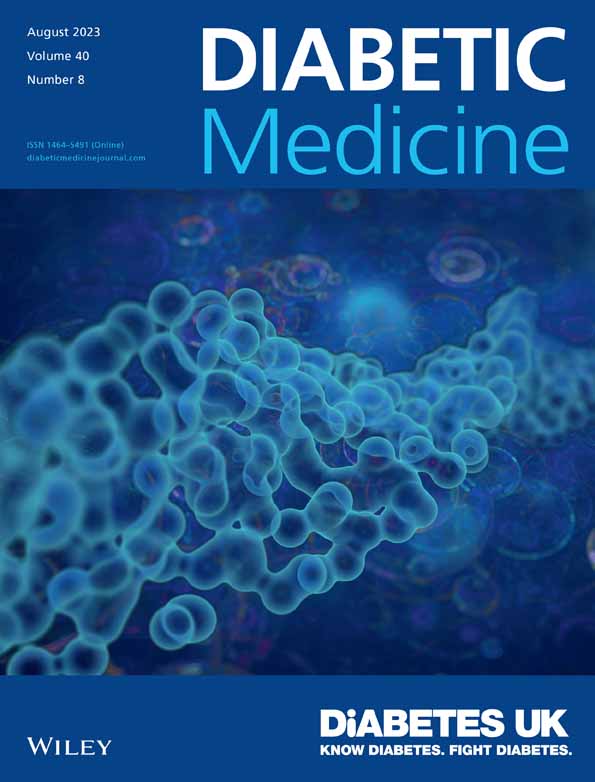Impact of diabetes stigma in diabetes distress and diabetes self-care: The moderating role of diabetes social support and general self-esteem in Arabic-speaking adults with type 2 diabetes
Abstract
Aims
There is increasing evidence that diabetes stigma has negative impacts on behavioural and psychological outcomes among people with type 2 diabetes (T2D). However, research has focused largely on Caucasian and certain Asian groups. The aim of this study was to examine associations of diabetes stigma with diabetes distress and self-care, and investigate the moderating effects of self-esteem and social support, in Arabic-speaking communities.
Methods
A cross-sectional study was conducted at 21 outpatient clinics and diabetes-specialist centres in the United Arab Emirates. Besides the Arabic Type-2 Diabetes Stigma Assessment Scale, participants completed other validated questionnaires assessing distress, self-care, social support, and self-esteem. General linear models were used to estimate the mean difference in diabetes-specific distress and self-care for every 1-point increase in diabetes stigma total score.
Results
Among 327 adults with T2D, the mean total score of diabetes stigma was 43.55 ± 13.95. Every 1-point increase in diabetes stigma was associated with significantly increased diabetes distress (β = 0.113, 95% CI: 0.078 to 0.147; p = 0.003) and decreased self-care behaviours: diet (β = −0.029, 95% CI: −0.048 to −0.009; p = 0.008), physical activity (β = −0.022, 95% CI: −0.038 to −0.006; p = 0.013) and foot care (β = −0.043, 95% CI: −0.059 to −0.026; p < 0.001). Self-esteem mitigated the effect of diabetes stigma on diabetes distress.
Conclusions
Perceived and experienced diabetes stigma was independently associated with increased diabetes distress and decreased engagement in diabetes self-care among Arabic-speaking adults with T2D. These findings are crucial to help clinicians provide more effective assessment and counselling and guide public health interventions to decrease diabetes stigma in these communities.
CONFLICT OF INTEREST STATEMENT
The authors declare that they have no conflicts of interest.
Open Research
DATA AVAILABILITY STATEMENT
The data that support the findings of this study are available from the corresponding author upon reasonable request.




